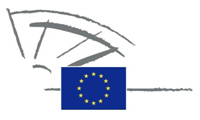 Earlier today the MEPs of the Transport and Tourism Committee (TRAN) backed an informal agreement on the Road Worthiness Testing package.
Earlier today the MEPs of the Transport and Tourism Committee (TRAN) backed an informal agreement on the Road Worthiness Testing package.
Back in December we reported that the final compromise text was agreed by the Lithuanian Presidency and the European Parliament on the Roadworthiness legislative package, which consists of three legislative proposals aimed to upgrade regulatory requirements for inspection of in-use vehicles (periodic technical inspections and roadside inspections of commercial vehicles) and registration documents.
Overall the revised rules, reportantly designed to improve road safety, would set new EU-level standards for periodic technical inspections of vehicles through a European Directive.
Testing equipment would have to meet minimum technical standards and inspectors carrying out periodic checks would have to satisfy minimum competence and training requirements laid down in the new rules.
For motorcycles instead of a blanket mandatory RWT in all member states, those member states who already have RWT – in the UK the MoT test – could keep their own testing methods and frequency.
Those without RWT can still introduce RWT for motorcycles if they wished orif they wish to exclude them:
Periodic Roadworthiness Tests – inclusion of L category vehicles
The heavy motorcycles will be subject to periodic roadworthiness tests from 2022. However, Member States may exclude these vehicles from testing if they have put in place alternative effective road safety measures, taking into account in particular road safety statistics of the 5 years.
If heavy motorcycles are included in the scope of periodic roadworthiness testing, specific testing methods, inspection areas and frequency are decided at the Member State level.
Heavy motorcycles (L-vehicles with an engine displacement of more than 125 cm3).
Within five years the Commission will submit to the European Parliament and the Council a report on the effectiveness of the possible inclusion of light motorcycles in the scope of the directive.
The proposals are to be put to a vote by Parliament as a whole in March.
Read our full reports on Road Wortheiness Testing – Click Here
Original Source – European Parliament News
Leave Comments On Right To Ride EU – Click Here
Road safety: Transport MEPs back vehicle inspections agreement
21st January 2014
An informal agreement with EU member states on minimum common standards for periodic vehicle inspections, vehicle registration documents and roadside inspections of commercial vehicles was backed by the Transport and Tourism Committee on Tuesday.
The revised rules, designed to improve road safety, would set new EU-level standards for periodic technical inspections of vehicles. Testing equipment would have to meet minimum technical standards and inspectors carrying out periodic checks would have to satisfy minimum competence and training requirements laid down in the new rules.
Heavy motorcycles should be tested from 2022 onwards, unless member states have “put in place effective alternative road safety measures for two or three-wheel vehicles, taking into account in particular relevant road safety statistics of the last five years”, the agreed text says. Testing methods and frequency for motorcycles is left up to the member states.
Roadside checks on commercial vehicles
n each calendar year, roadside checks would have to be made on at least 5% of commercial vehicles on EU roads and each member state should strive to carry out an appropriate number of inspections proportionate to the number of registered vehicles. The compromise text also calls on member states to take light commercial vehicles into account in their overall road safety and roadside inspection strategies, even though this is beyond the scope of the revised rules on roadside inspections.
To support roadside inspections, member states should use risk rating systems to target firms whose commercial vehicle fleets have poor safety records and reduce the administrative burden on those with good ones.
The agreed text also sets out cargo securing requirements, should member state authorities choose to include these in roadside inspections.
Mutual recognition
To simplify vehicle re-registration, member states in which vehicles are re-registered would be required to recognise a valid roadworthiness certificate issued by another member state. Data on periodic roadworthiness tests and validity of the roadworthiness certificate as well as certain data on registered vehicles should be recorded electronically, say MEPs.
The new rules would also simplify the “suspension” (removal from the road on safety grounds) of vehicles without a valid roadworthiness certificate, but suspension would not have to be followed by a new registration once a vehicle is again authorised to be used in road traffic.
Next steps
The proposals are to be put to a vote by Parliament as a whole in March.
Original Source – European Parliament News


